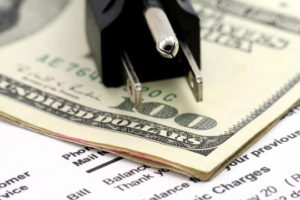
A poor credit score can be a hassle for you, but it can also cost you money. People with poor or bad credit are usually charged higher interest rates on loans or credit cards, because the lender wants to protect themselves against high risk people.
For example, if you took out a car loan for £7000, paying it back over 3 years, you’d pay an extra £80 a month if you have a bad credit profile, over people with an excellent credit profile. Just improving your profile from “bad” to “average” could save you £30 a month.*
If you have a bad credit profile and struggle to get approval for credit, you’re also more likely to turn to high interest payday loans to meet needs like a new car or home repairs. The rates on these loans can be percentages of hundreds or even thousands, meaning you end up paying significantly more than you borrowed, especially if you fall behind on payments.
This is because if you have a history of missing payments, defaulting on loans or taking out more credit than you can afford, lenders will be wary about giving you more credit. They’ll worry that if you borrow money from them, you might not pay it back and they’ll end up out of pocket. So they charge you more to protect themselves.
Improving your credit profile even a little bit can help you to get a better loan or credit card deal.
Here are some simple steps to take:
- Pay off some debt, or if you’re unable to do this, consolidate it into one loan. Having loads of creditors listed on your profile all with outstanding debt sends an alarm bell ringing to new lenders. Resolve any missed payments or defaults. If this means you have to delay your application while you save some money to pay back these outstanding amounts, so be it. Applying with these red marks still on your profile will result in you not getting a good deal, or even being rejected, which can hurt your chances of acceptance in the future. Waiting and getting up to date is a much better plan.
- Make sure that all the information on your profile is correct and up to date. You can get a copy for free, so you can check what it says. You might find that you have multiple current addresses listed – make sure that all bills and accounts are registered with your current address. Lenders will find it easier to trace you and you’ll look more organised. You might also find incorrect or out of date information. If this is the case contact the lender and ask them to update it. Don’t apply until you know that your credit report is correct.
- Avoid applying for credit until you’ve improved your profile as much as you can. Some applications leave a trace on your history and if other lenders see that you’ve applied for a lot of different loans or credit cards recently they might be less inclined to lend to you. You’ll also improve your chances of getting a good loan rate and not wasting money on high interest rates if you wait to clean up your profile first.



